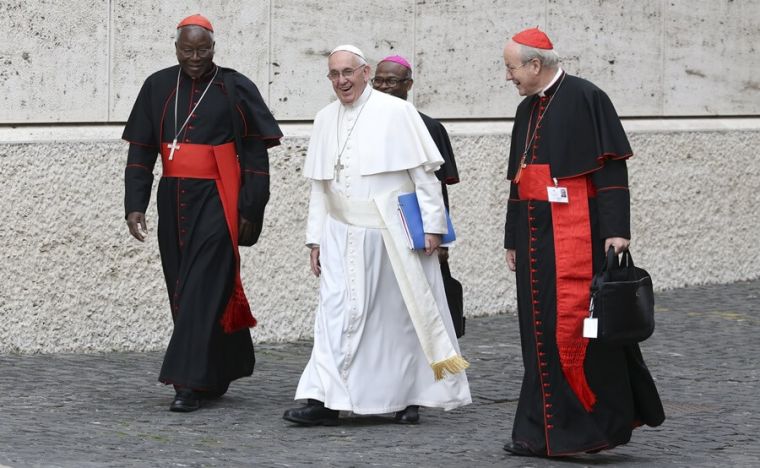Synod letter row: Don't believe everything you read, says Vatican

The director of the Vatican's press office has attempted to damp down the furore over the leaked letter to the Pope from senior figures involved in the Synod on the Family.
The letter was allegedly signed by 13 cardinals and expressed serious criticisms over the way the synod was being conducted, warning of its potential to split the Church.
Father Federico Lombardi said four of alleged signatories had denied involvement and that the published letter was not the same as the one actually sent to the Pope.
He said leaking this version was a "disruption that was not intended by the signatories (at least by the most authoritative). Therefore it would be inappropriate to allow it to have any influence."
The bishops complained in the letter that new synod procedures lack "openness and genuine collegiality" and that "a vital pastoral matter" – the importance of marriage and family – could be overshadowed by the question of Communion for divorced Catholics. They also complain that members of the drafting committee were appointed by Francis rather than elected by the synod.
Lombardi said criticism of the methodology of the Synod was "neither new nor surprising".
Pope Francis has made various changes the way the synod functions, including giving more time to the small group discussions.
However, Lombardi said: "The overall climate of the Assembly is without doubt positive."
That the letter could have been sent at all reflects the deep unease of conservative Catholics about the implications of the Synod on the Family. It will not change Catholic doctrine, but could set a new tone in how bishops and priests approach questions such as divorce and remarriage, cohabitation and homosexuality. A less confrontational and exclusive pastoral approach would be in keeping with Pope Francis' message and style, but he is thought by some to be insufficiently rigorous in his application of the Church's moral teaching.
The leaked version of the letter contains a solemn warning about the consequences of relaxing essential doctrinal positions, referring – though without naming them – to the numerical implosion of denominations such as the Episcopal Church in the US. It says: "The collapse of liberal Protestant churches in the modern era, accelerated by their abandonment of key elements of Christian belief and practice in the name of pastoral adaptation, warrants great caution in our own synodal discussions."











